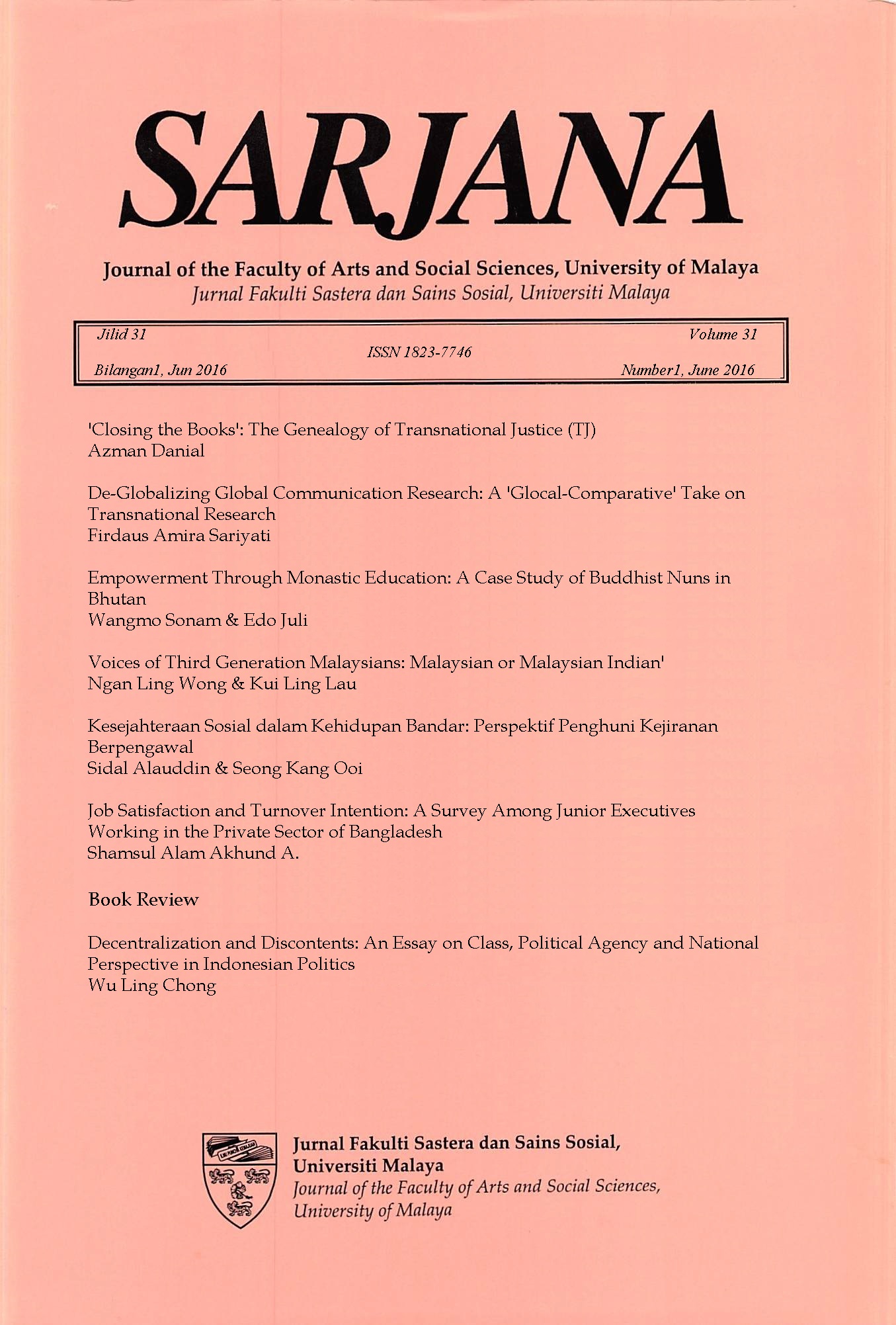Job Satisfaction and Turnover Intention: A Survey Among Junior Executives Working in the Private Sector of Bangladesh
Main Article Content
Abstract
This study was conducted to measure the level of job satisfaction and its impact on turnover intention. Data was collected using the "Job Satisfaction Survey" developed by Paul E. Spector (1994) and the "Turnover Intention Questionnaire" adopted from Mobley, Horner, and Hollingsworth (1978). A total of 284 junior executives working in the private sector of Bangladesh took part in the survey from August to September 2015. Measures of central tendency, dispersion and association were used as part of descriptive statistics while an independent sample t-test was used as part of inferential statistics. Multiple linear regression analysis was also used to identify significant predictors of turnover intention. The study reveals that nearly one-fourth of the respondents were actively seeking alternative employment. Moreover, the respondents were discovered to be less satisfied with their jobs (mean score=3.77 out of 6). The study also revealed that almost all the facets of job satisfaction have a negative effect on turnover intention. Among them, the "fringe benefits" has been marked as the most important factor while "promotion" has been identified as the least important one.

